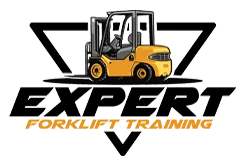Blog Single Style
The essence of interior design will always be about people and how they live. It is about the realities of what makes for an attractive, civilized.
- Home
- Blog Single
- Posted March 19, 2024
- By admin
- 0 Comments
Maximize Efficiency: Harness the Benefits of Forklift Training in Mississauga

In the bustling industrial landscape of Mississauga, where efficiency is paramount, the role of forklifts cannot be overstated. These powerful machines are essential for lifting, moving, and transporting heavy loads with precision and speed. However, their potential can only be fully realized when operators are equipped with the right skills and knowledge. This is where expert forklift training in Mississauga becomes crucial.
Forklift Training in Mississauga: A Necessity, Not an Option
Forklifts are powerful tools, but they can also be hazardous if not operated correctly. Accidents involving forklifts can result in serious injuries, damage to goods, and financial losses. To mitigate these risks and ensure a safe and efficient work environment, investing in comprehensive forklift training is necessary for businesses.
Choose an Accredited Training Program
Once you have a clear understanding of the legal requirements, the next step is to choose an accredited forklift training program. Look for training providers that adhere to industry standards and are recognized by relevant authorities. Accredited programs ensure that you receive quality training that meets the necessary standards, providing you with the skills and knowledge required to operate a forklift safely.
The Legal Perspective
Beyond safety concerns, there are legal obligations that businesses must adhere to regarding forklift operations. Ontario’s Occupational Health and Safety Act mandates that employers provide proper training for forklift operators. Therefore, forklift training in Mississauga is mandatory. Failure to comply with these regulations can lead to fines and legal consequences. Therefore, forklift training is not just a prudent measure for safety but a legal requirement that businesses must prioritise.
Key Benefits of Forklift Training in Mississauga
Enhanced Safety:
The foremost advantage of forklift training is the improvement of overall workplace safety. Certified forklift operators are well-versed in safety protocols, risk management, and accident prevention strategies. They are trained to navigate through challenging environments, handle loads of various shapes and sizes, and respond effectively to unexpected situations. Investing in forklift training, creates a safer workplace, reducing the likelihood of accidents and injuries.
Increased Efficiency:
Efficiency is the cornerstone of success in any industrial setting. Forklift training ensures that operators can maximize the potential of the equipment, leading to smoother operations and increased productivity. Professionally trained forklift operators are adept at optimizing load handling, minimizing downtime, and efficiently organizing warehouse spaces. This heightened efficiency directly translates to cost savings and improved overall business performance.
Cost Savings:
While some businesses may view forklift training as an additional expense, it is important to recognize it as a strategic investment. The cost of accidents, injuries, and damage to goods far outweighs the expense of providing comprehensive training for forklift operators. By reducing the risk of accidents and improving operational efficiency, businesses can realise significant cost savings in the long run.Communicate Effectively:
Effective communication is crucial in a workplace where forklifts are in operation. Use standardised hand signals and communicate clearly with colleagues and other forklift operators. A well-coordinated team reduces the risk of accidents and enhances overall efficiency in material handling operations.
Compliance with Regulations:
Expert Forklift training ensures that businesses comply with local and provincial regulations governing workplace safety. This not only helps avoid legal consequences but also establishes a reputation for responsible and ethical business practices. Compliance with regulations is not just a legal requirement; it is a commitment to creating a secure and lawful work environment.
Skill Development and Certification:
Forklift training programs not only cover the basics of safe operation but also focus on skill development. Certified operators possess the expertise to manage complex maneuvers, operate in tight spaces, and adapt to changing work conditions. Forklift certification is a testament to an operator’s proficiency, providing employers and clients with the assurance that they are entrusting their operations to a skilled professional.
Forklift Training Cost in Mississauga: A Wise Investment
While businesses may be concerned about the upfront cost of forklift training, it is essential to view it as an investment rather than an expense. The cost of training is negligible compared to the potential losses resulting from accidents, damage to goods, and legal repercussions.
The forklift training cost in Mississauga depends on various training programmes as many forklift training providers offer flexible and cost-effective training programs. From basic courses for beginners to advanced training for experienced operators, businesses can choose the level of training that suits their specific needs and budget constraints.
Choosing the Right Forklift Training Provider
Selecting the right forklift training provider is crucial for reaping the maximum benefits of the training programs. Look for a reputable provider with experienced instructors, a comprehensive curriculum, and a history of success. Reading reviews and testimonials from other businesses can provide valuable insights into the effectiveness of a training program.
Additionally, consider customized training options that cater to the specific requirements of your business. Tailored training ensures that operators are equipped with the skills and knowledge directly relevant to their workplace, enhancing the practical applicability of the training.
Beyond the immediate benefits, forklift training in Mississauga represents a commitment to continuous improvement. As technology evolves and workplace dynamics change, staying ahead of the curve is crucial. Forklift training programs often incorporate updates on the latest industry standards, technological advancements, and best practices. This commitment to ongoing education ensures that forklift operators remain adaptable and proficient in their roles.
Additionally, forklift training fosters a culture of accountability and responsibility within the workforce. Certified operators take pride in their expertise, understanding the significance of their role in maintaining a safe and efficient workplace. This sense of responsibility translates to a more engaged and conscientious workforce, contributing to a positive work environment.
Furthermore, businesses that invest in forklift training showcase their dedication to employee development. This not only attracts skilled professionals but also fosters loyalty among existing staff. Employees appreciate employers who prioritise their safety and invest in their skills, creating a positive workplace culture that extends beyond the training room.
Conclusion :
In the competitive industrial landscape of Mississauga, maximising efficiency is imperative for success. Forklifts play a pivotal role in achieving this efficiency, but their potential can only be harnessed through proper training. Investing in forklift training is not just a legal requirement but a strategic move that enhances safety increases efficiency and contributes to overall cost savings. Businesses that prioritise forklift training position themselves for success in the dynamic and demanding world of industrial operations. Do not view it as an expense; see it as a wise investment in the safety, efficiency, and prosperity of your business.
